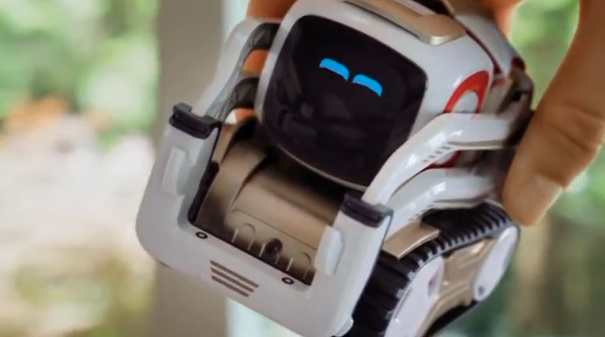
Most robots are designed by a combination of hardware and software engineers, working together to create a machine that can accurately perform specific functions, like building cars or vacuuming floors.
Cozmo, on the other hand, was built to entertain. The small toy robot is an interactive buddy that can play puzzle and speed games while using machine learning to get to know its user. Led by a Pixar veteran, a full regiment of Hollywood animators were hired to design a machine that people would love as much as Disney’s Wall-E or Stars Wars R2D2.
“The technology inside of Cozmo is meant to take a character like that and really bring him to life in the real world,” said Hans Tappenier, co-founder and President of Anki, the San Francisco based company that developed Cozmo.
The Hollywood team created Cozmo the same way they would a character in an animated feature. But while giving a movie robot a personality only requires a good imagination, developing a machine that can interact with people in a meaningful way required a technological leap.
“In order to make Cozmo into a believable character, he needs to understand what’s happening around him,” Tappenier told Reuters.
The artificial intelligence (AI) program is based on human emotions. ‘Feelings’ programmed into Cozmo’s digital brain such as confidence, happiness, anger and excitement, compete for control of its operating system as real emotions would in a human brain. If Cozmo loses a game he may become angry or sad and could gloat if he wins.
Cozmo is also equipped with computer vision which allows him to recognize who he’s playing with along with an array other sensors all aimed at ‘sensing’ its surroundings.
“The computer vision system which recognizes facial expressions, happy, sad, angry, surprised is already fully functional and implemented,” Tappenier said. “We don’t use it yet but in one of the next App updates very soon from now we are going to be using that as well,” he added. This mean the robot will soon be able to tell what its user is feeling.
Anki is hoping that with a $180 price tag, a robot that resembles a pet more than it does a piece technology will attract shoppers in the upcoming holiday season. (Reuters)








